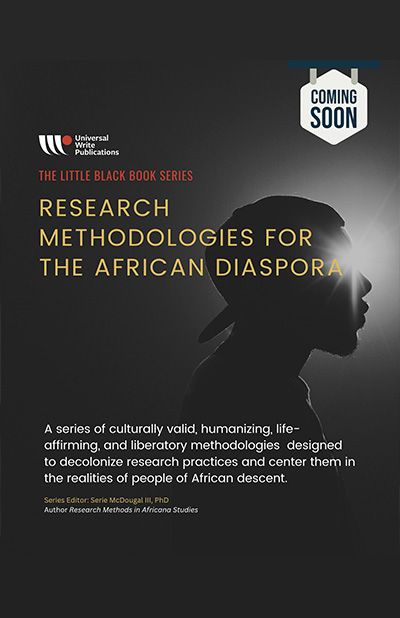

-
ISBN – Paperback: Coming Soon
-
ISBN – eBook: Coming Soon
-
ISBN – Hardcover: Coming Soon
-
Publish Date: Coming Soon
-
Book Pages: Coming Soon
-
Coming Soon
-
Download TI Sheet
Guide to Afrocentric Research Theories in the Humanities
Description
Dr, Camara writes a groundbreaking exploration of Afrocentric theories as a foundational framework for research within the humanities, addressing the limitations of Eurocentric paradigms in the study of African and Afro-descendant societies and cultures. By systematically presenting an array of original and adapted theories, the book empowers scholars to frame their research through lenses that authentically reflect the historical, civilizational, and cultural dimensions of Global Africa Collective (GAC)—a term encompassing Africa and its Diaspora.
This volume in The Little Black Book Series for Research Methods for the African Diapora, Dr. Camara organizes approximately thirty Afrocentric theories into concise, thematically structured chapters illuminating diverse Africanity aspects as an integrated worldview. These theories, including Transcendental Africanity, Meta-imperialism, African Womanism, and Post-slavery Transgenerational Trauma, challenge dominant epistemological frameworks while offering tools to conceptualize and contextualize the African experience within its distinctive milieu.
Through an intersectional approach, the book engages critical issues such as African spirituality and naturality, decoloniality, communitarianism, intergenerational mutualism, and gender dynamics. It emphasizes the transformative potential of Afrocentric theorizing in fostering a more nuanced and equitable understanding of African and Afro-Diasporan histories, philosophies, and cultural identities.
Drawing from the author’s decades of scholarly research, mentorship, and teaching, Guide to Afrocentric Research Theories in the Humanities positions itself as an indispensable resource for scholars, graduate students, and researchers seeking methodologies that resonate with the essence of Africanity. The book responds to longstanding gaps in the field and charts a course for future research that transcends colonial epistemic constraints.


